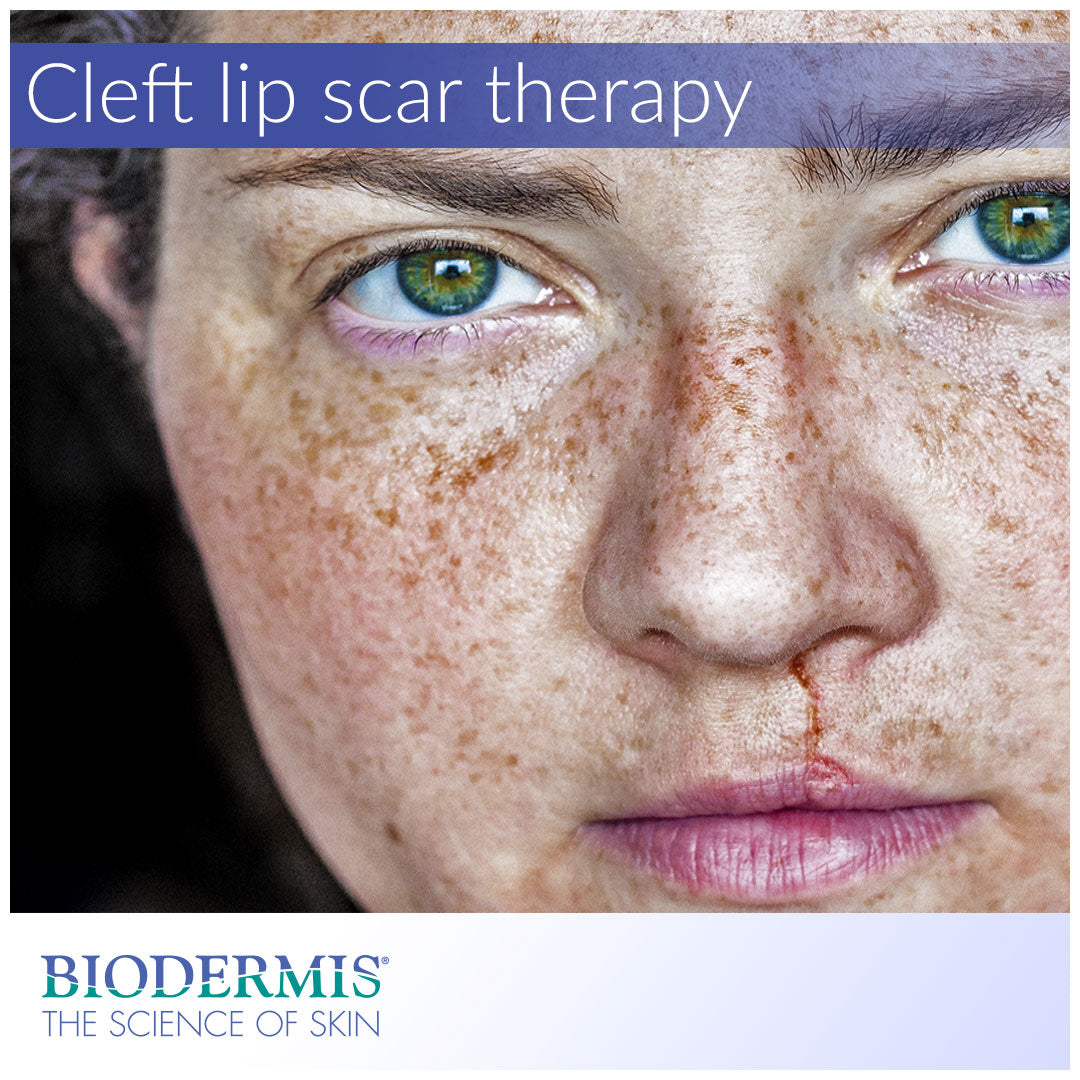Continue reading to learn more about cleft lip surgery and to discover a safe and effective treatment option for post-operative scars.
What is cleft lip?
Cleft lips and palates form in a fetus during the first trimester of a woman’s pregnancy. When prenatal development occurs normally, connective tissue and specialized cells that make up the head come together to form the face, lips, and mouth. Cleft lips are the result of this tissue not fully connecting, leaving the child with a small or large opening in the upper lip; this slit can sometimes lead into the nostril, causing difficulty breathing and speaking. In other cases, this condition can extend to the gums and roof of the mouth, revealing the babies’ teeth and making it difficult to eat. Cleft lips can generally be diagnosed prenatally with an ultrasound while cleft palates are more easily detected at birth.
Cleft lips and palates can occur individually or simultaneously in the same child. Cleft lips most commonly affect boys while cleft palates seem to affect mostly girls. There's also a chance for a baby to born with either a unilateral or bilateral cleft (see image below). Thousands of babies are born with one of these deformities each year in the United States alone. Even with these statistics, doctors still don’t fully understand the causes of this condition. A combination of genetic abnormalities and environmental factors is thought to contribute, but it’s difficult to pinpoint specific culprits. However, it’s well known that smoking, diabetes, and consumption of certain drugs during pregnancy can dramatically increase the risk of having a baby born with a birth defect.

Cleft lip surgery and scar management
Surgery under general anesthesia is often required to close the opening caused by a cleft lip or palate. During the surgery, a plastic surgeon will make minimal incisions on the outer edges of the separated tissues and sew the lip together. Small, dissolvable stitches are commonly used to reduce visible scarring. Cleft lip and palate operations work best within the first 12 months of a child’s life, usually between 3 and 6 months old. This is to avoid any complications that can occur later in life when the baby’s face begins to mature and undergo structural changes. However, each individual case is different depending on the infant’s health.
Visible scarring is a likely result from cleft lip surgery. Although these scars aren’t large, they are present on a noticeable part of the face just under the nose. Some scars fade over time, but it may take several years. Others who are predisposed to keloids and hypertrophic scars may experience significant scarring that will not fade over time. This can cause self-esteem issues as the child grows older and begins to notice his or her own appearance. To manage the overgrowth of these scars, topical silicone for scar therapy should be applied to the affected area. 
Silicone gel technology emerged over 30 years ago as the only clinically-proven topical solution for scar management. Medical silicone works through two mechanisms of action: dermal hydration and collagen regulation. Wounds need proper hydration to heal effectively over time so that scars don’t become raised or discolored from collagen buildup. The overproduction of collagen that leads to this buildup is the result of dermal dehydration at the trauma site. By locking in moisture that would otherwise be lost to transepidermal water loss, the user promotes an optimal healing environment, otherwise known as homeostasis. This help to flatten and smoothen scars, allowing them to blend in with the surrounding tissue.
Please visit Operation Smile if you would like to donate to a cause that helps children affected by cleft lip to receive the operation they need for a better, happier life.
Biodermis is an innovative market leader with 30 years of expertise in the medical silicone industry.Visit Biodermis.com today to explore a complete range of scar management and post-operative care solutions.
Biodermis offers custom tailored referral programs designed to simplify and reduce the cost of your patients' post-op care. Additionally, we offer professional pricing if you opt to retail our products. Give us a call at 800.322.3729, and we will be happy to provide additional details on these programs.





